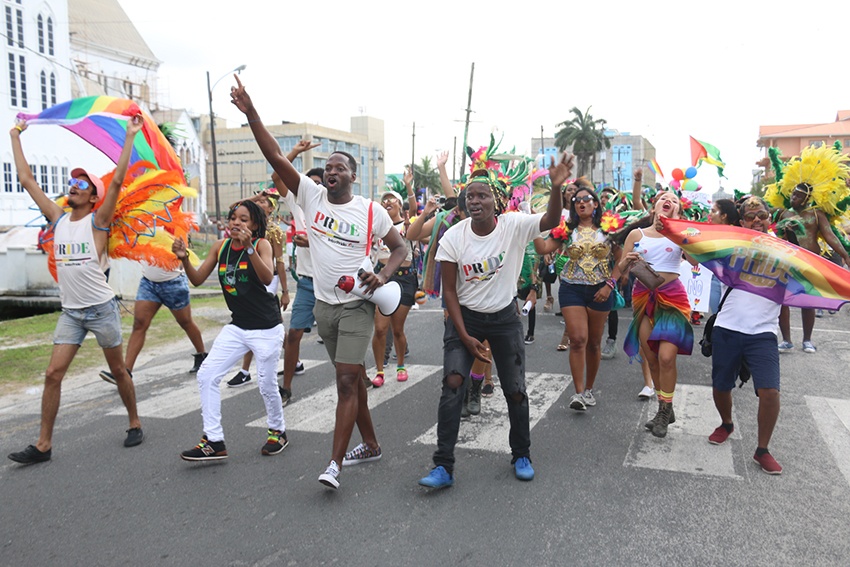Guyana formally decriminalizes cross-dressing
The Guyanese National Assembly has passed a bill that formally repeals the ban on cross-dressing that was struck down as unconstitutional by the Caribbean Court of Justice (CCJ) in 2018.

The Summary Jurisdiction (Offences) (Amendment) Act was passed by the National Assembly on August 9 and received royal assent, becoming law, on August 11. It removed section 153 (xlvii), which condemned anyone who “being a man, in any public way or public place, for any improper purpose, appears in female attire, or being a woman, in any public way or public place, for any improper purpose, appears in male attire,” to a fine of between 7,000-10,000 Guyanese dollars (approximately US $33-$48).
In 2009, a group of seven transgender women were charged and convicted under the law and ordered to pay G$7,500. They fought the conviction all the way to the CCJ, the court of final appeal in Guyana. In November 2018, the CCJ struck down the law after finding that it was unconstitutionally vague and “violated the appellants’ right to protection of the law and was contrary to the rule of law.”
In an explanatory note to the bill, the government states that it “signals the government’s commitment to fulfilling the human rights of all Guyanese. The Government rightly acknowledges and agrees with the CCJ that this archaic law, which is inconsistent with the Constitution of Guyana, has no social of legal purpose in a progressive society.”
Still, the government has not announced any intention to repeal sections of its Criminal Law (Offences) Act which penalize same-sex intimacy with up to life imprisonment. Although the offending sections are rarely enforced, Guyana remains the only country in South America where same-sex intimacy is criminalized.
Guyana inherited its prohibitions on same-sex intimacy from the British colonial era, as did many other countries in the Caribbean region. However, some nearby countries have decriminalized same-sex intimacy in recent years, including Belize (2016) and Trinidad and Tobago (2018). Barbados also announced plans to expand LGBT rights and recognize civil unions in 2020, although it has not formally committed to decriminalizing gay sex.





this ruling is a victory for everybody and not just cross dressers. We should be able to wear whatever we want within the constitutionality of the law.
This is progress don’t get me wrong. But honestly it’s happening so fucking slow. As long as you’re both mature and it’s consensual let people marry and fuck who ever they want. Like it’s going to bother you. Don’t like gay marriage? Then don’t get gay married. It’s not some sort of contagious disease, it’s not like we’re gonna just stop being gay. It’s absolutely fucking stupid that there are probably some members of parliament that still think that.